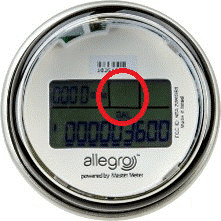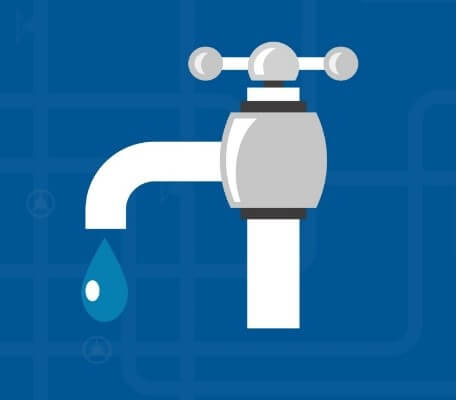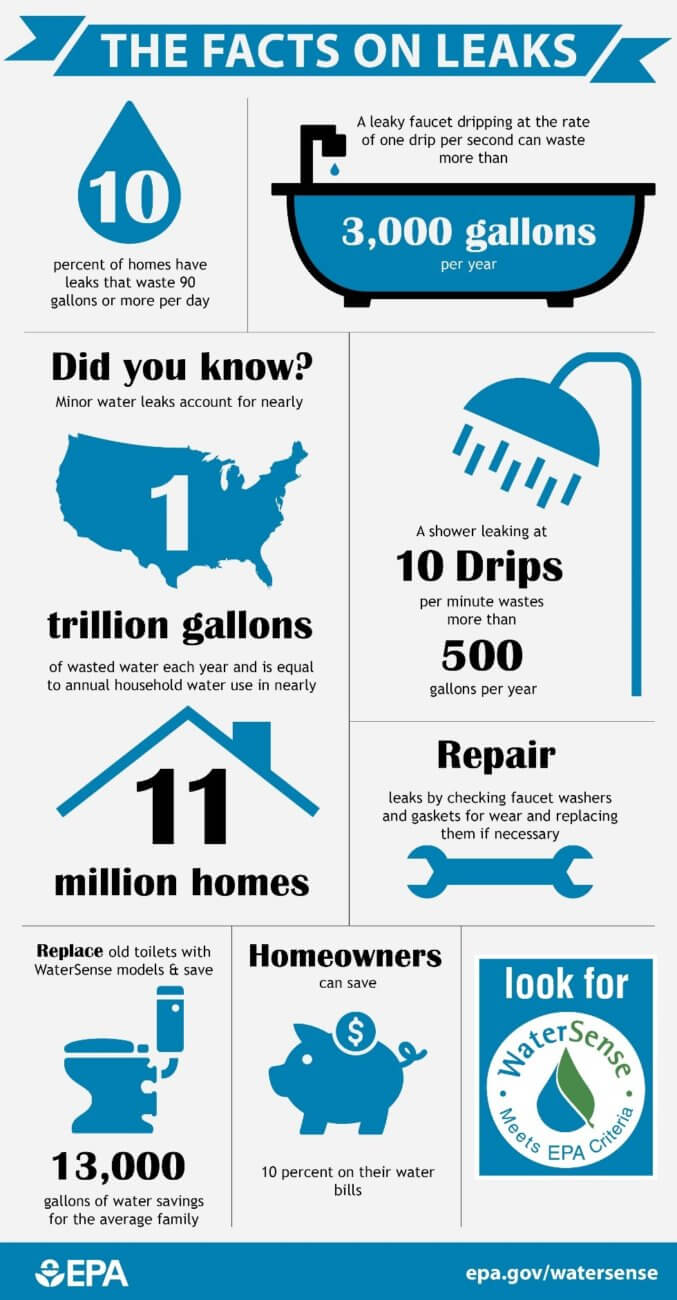Important for more than a week!
The Environmental Protection Agency’s annual Fix a Leak Week was created to encourage Americans to use water efficiently by finding and fixing leaks. Repairing minor leaks, such as running toilets, leaky faucets, and dripping shower heads, can save a family as much as 10 percent on their utility bill and save water for future generations.
Most of the time, wasting water can be seen instantly – like watering your lawn too much, or leaving the faucet on for too long. Sometimes, the worst water waste can go unnoticed for days, weeks, and even months. It’s very easy to miss a leak that you can’t see or hear. It’s extremely important to keep an eye on your water usage.
We try our hardest to notify our water customers of leaks at their properties. We will send emails, postcards, and even door hangers to ensure that you know about your leak!

Keep an eye out for leaks
You can go look at your water meter to check for leaks while no water in being used at your property. Watch it for five minutes to see if any of the numbers move or if an arrow symbol appears in the upper center square. If an arrow symbol appears in the upper center of the meter, then water is going through the meter, which means something is “using” water on your property. You can also look at your water bill usage (look at the gallons, not just the dollars). If you’re using more than 2,000 gallons per person, per month, in the home, then usage is higher than average, and you may want to check for leaks.
Places to check if you think you do have a leak
- Toilets – flappers are a huge source of leaks inside the house. Use dye tablets or food coloring to see if the flapper isn’t sealing property. See video on how to do this!
- Hot Water Heaters – look to see if there is water in the pan under the hot water heater. If so, there is a leak in the heater, and it will need to be replaced or repaired by a professional.
- Irrigation Systems – Hire a licensed irrigation company to come check the system for leaks, or manually run though each station for several minutes looking for problems in the system.
- Sometimes a line break is easy to spot, as water will be pooling into the street or on the sidewalk. Often leaks aren’t visible, thanks to the rocky, karst limestone area we live in. Water flows down, through the rock and we don’t see a pool of water in the yard. You’ll need to look for signs of low water pressure, such as sprinkler heads no popping up.
- Water Softeners – listen for signs of recharging of the unit. Typically, they only recharge at night, if you constantly hear it, or hear it during daytime hours have a service company come check it.
- Faucets – constant running water or drips coming from bathroom or kitchen faucets, the bathtub, or outdoor hose bibs are leaks that need repairing.


Water Meter – if you see water coming out of the water meter, or in the meter box, call 512-218-5555 to have the City come check the meter for a leak.

Leaks can deceive
Leaks can seem like a small amount of water; it may be just a drip or a small trickle. BUT over time, these leaks can turn out to waste tremendous amounts of water and cost the homeowner hundreds of dollars on their monthly water bill.
Even a showerhead that drips every second can waste over 3000 gallons of water per year! That is a tremendous amount of potable (drinkable) water that has gone to waste!
Will it really make a difference?
t’s a question that everyone asks themselves. Something I hear is “I’m just one person.” This is proven wrong with facts! It’s crucial to get out of this mindset! The amount of homes with leaks add up!
Importance of Water Conservation
Drought is an ongoing problem for Texas, especially in the summertime. The effects of drought can be seen throughout the state. We notice lake levels drop, plants drying and dying. With climate change affecting our water systems in drastic ways, we must do everything we can to conserve the water we are lucky to have.


